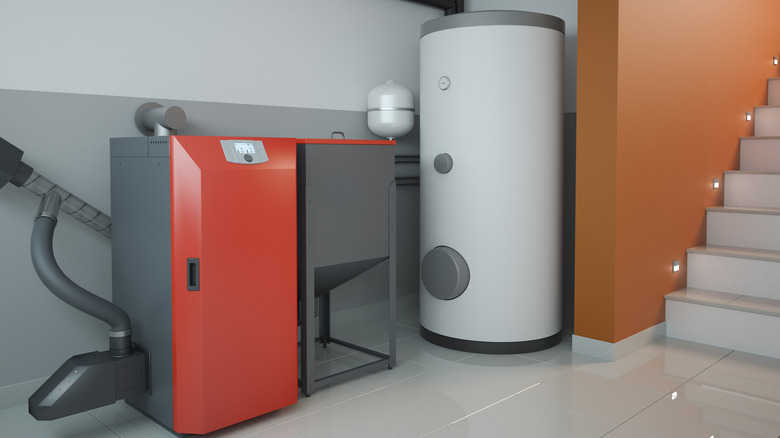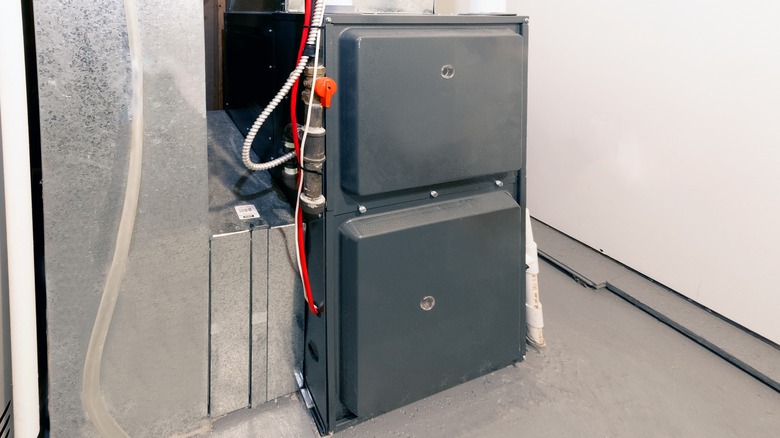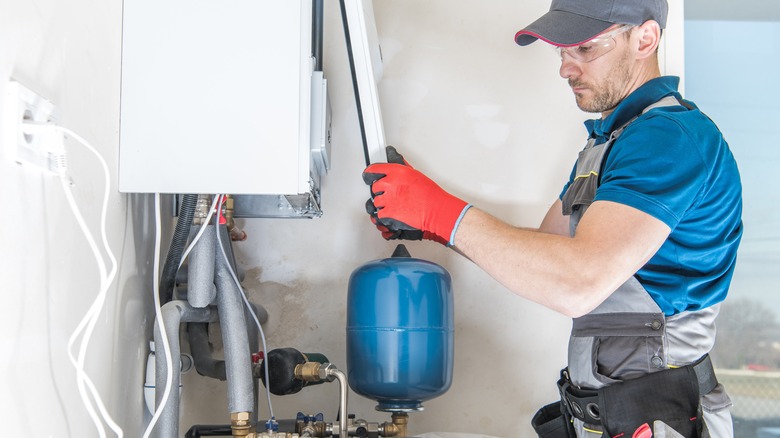How Long Should Your Furnace Last?
A furnace is an important part of the HVAC system and is essential for providing hot water and keeping homes warm and comfortable during the winter. However, just like any other appliance in your home, a furnace doesn't last forever, it will eventually stop working after a given duration of service. Because it is one of the main components of the HVAC system, it is important to be aware of its life span and also to know what your options are when it's time for a replacement.
What's more, replacing a furnace is quite expensive and can range from $4,500 to $8,000, notes Jacobs Heating & Air Conditioning. As such, knowing when your furnace is approaching the end of its life will help you budget accordingly. With this in mind, we take a look at how long you can expect your furnace to last and suggest some ways that you can squeeze a few more years from this appliance.
The lifespan of a furnace
Right off the bat, it is necessary to acknowledge that there is no one specific number when it comes to the life expectancy of a furnace. It all comes down to a series of factors, such as its size, how well it has been maintained, its unique features, and when it was manufactured. Generally speaking though, an average furnace will last between 15 to 30 years, notes Consumer Reports. However, if you are diligent with your maintenance routines and have luck on your side, your furnace might last even longer.
According to A-1 Mechanical, an average electric furnace typically lasts longer than its gas counterparts. This is because of the design and the fact that there is no combustion, which also allows the furnace to remain in good condition for longer. However, if your furnace is over 15 years old, it is a good idea to start thinking of a reliable replacement.
How to extend the lifespan of your furnace
Scheduling regular maintenance is one of the ways of extending the lifespan of your furnace. All furnaces come with filters that should be changed regularly — as such, Ottawa Home Services recommends replacing the filters every 90 days. The condition of the furnace filters affects the air quality, but most importantly, they also have an impact on the performance. Too much buildup on the filters will make the furnace work extra hard to heat up, which will ultimately impair its performance. Doctor HVAC recommends scheduling professional furnace maintenance at least once a year to make sure it is in tip-top shape.
When you do decide on a suitable replacement, it is important to choose the right size for your needs. Keep in mind that the most suitable furnace is neither the smallest option that consumes the least power nor the largest one that heats up quickly. The right size is the one that works efficiently, and an efficient furnace is less likely to break down, which will ultimately ensure its maximum lifespan.


